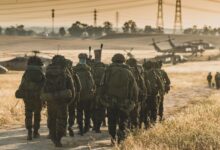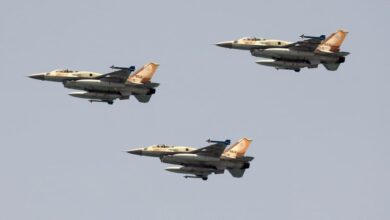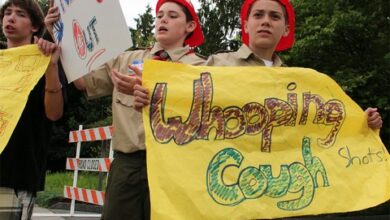Kim Jong Un’s Arrives In Russia Via His Personal Train Amid Global Concerns Over Potential Arms Deal For Russia Ukraine Conflict
North Korean leader Kim Jong Un is in Russia and has drawn significant international attention, particularly in light of his expected meeting with Russian President Vladimir Putin. The visit comes at a time of heightened global tensions, with concerns about potential arms deals between North Korea and Russia, as well as the broader geopolitical implications of this meeting.

North Korean leader Kim Jong Un has arrived in Russia, accompanied by high-ranking military officials responsible for his nuclear-capable weapenry and munitions factories.
His visit comes ahead of an anticipated meeting with Russian President Vladimir Putin, which has raised concerns in the West about potential arms deals related to Russia’s involvement in the conflict in Ukraine.
According to North Korea’s official news agency, Kim embarked on his personal train journey from Pyongyang on Sunday and was joined by various members of the country’s ruling party, government, and military, although specific names were not disclosed.
South Korea’s Defense Ministry spokesperson, Jeon Ha Gyu, noted that the South’s military intelligence suggested Kim’s train entered Russia early on Tuesday, though details about the source of this information were not provided.
North Korean state media released images of Kim being greeted by honour guards and cheering civilians, as well as him waving from his distinctive green-and-yellow armoured train before its departure. His delegation likely includes key figures such as Foreign Minister Choe Sun Hui and high-ranking military officials like Korean People’s Army Marshals Ri Pyong Chol and Pak Jong Chon.
Korean Central News Agency reported that senior officials bid farewell to Kim at the station, though it didn’t specify whether the train had crossed the border; at the same time, unidentified Russian regional sources, cited by Japanese broadcaster TBS, reported that Kim’s train had indeed crossed into the Russian border town of Khasan.
The Kremlin’s website briefly mentioned that Putin had invited Kim for the visit and that it would occur “in the coming days”; however, no specifics about the meeting were provided.
Kremlin spokesperson Dmitry Peskov stated that Putin and Kim would lead their respective delegations in talks and might also have a one-on-one meeting if necessary; these talks are expected to center on bilateral relations and cooperation.
One potential meeting location is Vladivostok, an eastern Russian city where Putin is attending an international forum; the same city previously hosted Putin and Kim’s first meeting in 2019.
This visit marks Kim’s first foreign trip since the COVID-19 pandemic, during which North Korea imposed strict border controls. Kim has used his personal train for previous meetings with leaders like Putin, Chinese President Xi Jinping, and former U.S. President Donald Trump.

The Enigmatic ‘Green Train’
Journalists near the North Korea-Russia border observed a green train with yellow accents, similar to Kim’s previous foreign trip trains, at a station on the North Korean side; it was seen moving near the bridge connecting the two countries but had not crossed as of 7 p.m. local time.
There are reports suggesting that a Kim-Putin meeting could occur as early as Tuesday, although South Korean government sources or relevant agencies have not officially confirmed these details.
The West Is In Unrest
U.S. officials have expressed concerns about North Korea and Russia’s expanding cooperation amid growing tensions with the United States. They suggest that Putin might seek additional supplies of North Korean artillery and ammunition to support the ongoing conflict in Ukraine.
In response, the U.S. has urged North Korea to uphold its commitments not to provide or sell arms to Russia and has warned of potential sanctions.
The meeting could involve discussions on arms-related matters, with North Korea possessing significant artillery and rockets, while Kim may seek energy, food aid, and advanced weapons technologies in return.
This potential technology transfer could raise concerns about the threat posed by North Korea’s growing nuclear weapons arsenal and missile capabilities, targeting the U.S., South Korea, and Japan.
Kim’s delegation also includes figures linked to North Korean efforts to acquire spy satellites and nuclear-capable submarines.

The Russia North Korea Ties
The relationship between Russia and North Korea has grown closer since Russia’s invasion of Ukraine in 2022, driven by Putin’s need for support in the conflict and Kim’s desire to strengthen alliances with Moscow and Beijing.
While using the Ukraine conflict as an opportunity to advance its weapons development, North Korea has blamed Washington for the crisis and has recognized Russian-backed separatist regions in Ukraine.
Russia and China have blocked U.S.-led efforts to strengthen sanctions on North Korea, accusing the U.S. of worsening tensions with Pyongyang through military exercises.
U.S. officials have alleged North Korea’s arms transfers to Russia, but both countries have denied these claims; however, Kim’s recent tours of North Korean weapons factories may indicate a potential for exporting supplies to Russia.
Some analysts suggest that a meeting between Kim and Putin may have more symbolic significance than substantial military cooperation, as Russia may be cautious about sharing its key weapons technologies with North Korea for limited war supplies transported over a small rail link between the countries.
Can Russia Really Be Seeking More Arsenal?
Russia may be seeking to resupply its arsenal for the ongoing war in Ukraine, turning to a former ally, North Korea, to bolster its munitions.
After more than a year of conflict in Ukraine, Russia faces the need to replenish its ammunition stocks for what appears to be a protracted war; in addition to increasing its domestic arms production, Moscow may indeed be exploring the possibility of obtaining a substantial quantity of artillery shells and rockets from North Korea.
Estimates suggest that North Korea possesses tens of millions of artillery shells and rockets that could significantly enhance Russia’s military capabilities despite its isolation and secrecy.
U.S. officials have anticipated a forthcoming visit by North Korean leader Kim Jong Un to Russia to negotiate a potential munitions transfer agreement with President Vladimir Putin. This prospect marks a remarkable shift from the Korean War era when the Soviet Union supplied weaponry and ammunition to the communist North.

Russian Defense Minister Sergei Shoigu made history by becoming the first Russian defence chief to visit North Korea since the collapse of the Soviet Union in 1991. His presence at a military parade in Pyongyang, alongside Kim and North Korean military officials, signalled a concerted effort by Moscow to strengthen ties with North Korea; Shoigu even suggested the possibility of joint military exercises.
Regarding the potential visit by Kim and the munitions deal, Kremlin spokesman Dmitry Peskov declined to comment but emphasized the importance of maintaining relations with Pyongyang, citing North Korea as a neighbouring country.
Although Kim’s visit to Russia in 2019 included promises of closer cooperation, it did not yield any significant breakthroughs; however, despite the dated nature of most of the Korean People’s Army’s arsenals, their vast quantity offers Russia a potential lifeline in Europe’s largest land conflict since World War II.
Analysts speculate that Russia may aim to establish North Korea as a “rear base” for its war efforts, facilitating a substantial flow of munitions to support its ongoing operations.
The U.S. has raised concerns about North Korea selling munitions to Russia’s private military contractor, Wagner, in November, but both Russian and North Korean officials have denied such claims.
Nevertheless, Moscow’s pursuit of North Korean weaponry has raised questions about the state of Russia’s military capabilities, with White House national security adviser Jake Sullivan describing the quality of North Korean arms as uncertain.

Jon Finer, U.S. President Joe Biden’s chief deputy national security adviser, acknowledged that buying weapons from Pyongyang may be Moscow’s best or only option to sustain its war effort. However, the U.S. and its allies have limited options for addressing this challenge, as a U.N. embargo on arms shipments to and from North Korea complicates the situation.
While North Korea’s massive stockpiles could strengthen Russia’s war effort, Moscow has also acquired drones from another ally, Iran, which have played a significant role in the conflict.
These drones have inflicted damage on Ukraine’s infrastructure and continue to be a concern despite Ukrainian efforts to counter them; Russia has even established its own production facilities for these drones, with Iran initially providing materials and technology.
In addition to acquiring munitions and drones, Russian arms manufacturers have developed new precision weapons, including satellite-guided gliding bombs, to counter Ukraine’s counteroffensive.
They have also adapted old Soviet-made bombs into highly efficient “smart” weapons, increasing their effectiveness in striking Ukrainian military assets.
Furthermore, Russia has extended the range of the Vikhr anti-tank missile used by its helicopter gunships, allowing them to engage Ukrainian armor from a safe distance.
Amid these efforts, Russian manufacturers have ramped up the production of tanks and other weapons, while the military has tapped into its Cold War-era storage of thousands of armored vehicles, upgrading them to enhance their survivability.
Dmitry Medvedev, deputy head of Russia’s Security Council, has announced plans to produce 1,500 battle tanks in 2023, demonstrating a commitment to meet the country’s military needs.
The Last Bit, Kim Jong Un’s visit to Russia, accompanied by top military officials and the prospect of a meeting with Vladimir Putin, has raised important questions and concerns on the global stage.
The potential for arms deals between North Korea and Russia, amid their growing cooperation, adds another layer of complexity to an already volatile international relationship between Russia, North Korea, and the West.






